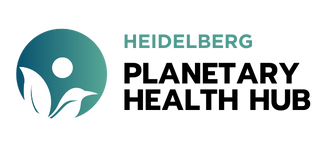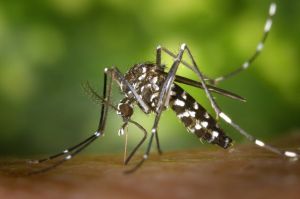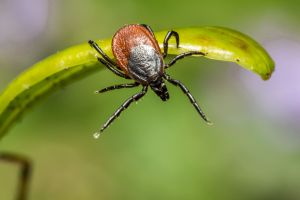
A joint initiative of the Heidelberg Planetary Health Hub (Interdisciplinary Center for Scientific Computing) and the Denkinger Group Global DX (Department of Infectious and Tropical Medicine)
Climate change is increasing the risk of transmission of several climate-sensitive infectious diseases, especially those spread by environmental factors and vectors such as mosquitoes and ticks. Rising temperatures, changing precipitation patterns, and urban expansion are altering vector habitats and extending transmission seasons in temperate regions, including southern Germany.
The Rhein-Neckar-Kreis (RNK) case study responds to this emerging challenge by integrating ecological, environmental, and health surveillance data to better understand and manage the risks posed by vector-borne diseases such as West Nile Virus (WNV), Tick-Borne Encephalitis (TBE), Lyme disease, and potentially Dengue.
This initiative combines novel and innovative field surveillance methods, point of care diagonstics, real-time environmental monitoring, citizen science, and intersectoral collaboration to identify hotspots, assess vulnerability, and support targeted interventions across human-animal-environment interface. It also builds on the Dengue Preparedness Plan of Baden-Württemberg, offering a framework for regional action and a scalable model for other parts of Europe and beyond.

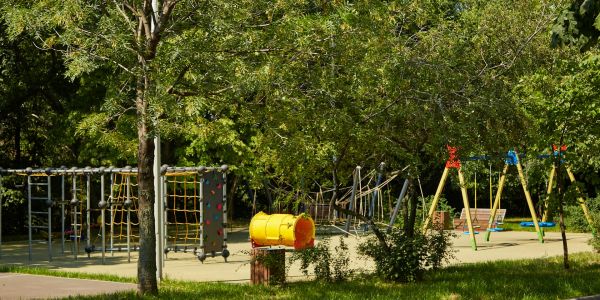
Fieldwork
As part of our research we conduct fieldwork around Heidelberg on mosquitoes, ticks, and birds to monitor them and understand their significance in controlling vector-borne diseases
Mosquito Surveillance
Mosquito monitoring by our team is carried out using smart traps that provide real-time data on mosquito activity. This work complements the efforts of our partners at ICYBAC (http://www.icybac.de/), who collaborate with the city of Heidelberg to monitor mosquito populations using traditional ovitraps distributed in a systematic grid across the city. To enhance surveillance, we deploy innovative smart mosquito traps (https://irideon.es) to monitor hotspots of mosquito activity. These traps automate the detection of key disease vectors using artificial intelligence. Equipped with optical sensors and classification algorithms, they count and identify trapped mosquitoes by genus (Culex and Aedes) and sex. The data are accessible in real time through an online platform, enabling continuous monitoring of mosquito population dynamics with high temporal resolution. This supports timely risk assessments and research into the effects of environmental conditions and control interventions on mosquito populations.
See the mosquito surveillance points.
Tick Flagging
See the tick monitoring sites.
Bioacoustics Monitoring
Autonomous bioacoustics sensors record bird and other animal sounds to detect bird hosts and ecological changes over time. These data are integrated with environmental variables to monitor biodiversity and track potential disease transmission cycles.
We have developed and tested an IoT-based bioacoustic system for real-time monitoring of bird species to support infectious disease research. Conducted at the Heidelberg zoo, the study recorded over 700 hours of audio and identified 57 unique avian species, demonstrating the system’s strong performance in a real-world setting. Powered by Raspberry Pi and open-source software (faunanet), the system enables integration of machine learning tools for both avian and non-avian species, making it adaptable for broader biodiversity and disease ecology studies. With GSM connectivity and a low prototype cost, the device presents a scalable solution for spatial and temporal wildlife monitoring.
Treskova M, Aamer H, Mack H, Wahlberg M, Airom O, Dayabandara S, Denkinger CM, Diener E, Fransson P, Heidecke J, Ulusoy I. Prototyping an internet-of-things-based bioacoustics system to support research and surveillance of avian-associated infectious diseases. Sensing and Bio-Sensing Research. 2025 Jun 3:100817.
See the bioacoustics monitoring sites.
Mobile Environmental Sensors (Bike-based studies)
Mobile environmental sensing is conducted across the spring, summer, and fall months in Heidelberg and the surrounding areas using bicycle-mounted sensors. These mobile units collect real-time data on temperature, humidity, air quality, and noise pollution, with sampling carried out both systematically along fixed routes and opportunistically during regular travel. The goal is to map fine-scale environmental variation and identify local microclimate conditions relevant to mosquito ecology and human exposure. Data collected by the mobile sensors are integrated with municipal weather stations, crowd-sourced temperature sensors, and satellite data to build a high-resolution microclimate model tailored to Heidelberg. This work supports mosquito risk modeling and assessments of population exposure to heat, air pollution, and noise, contributing to urban health planning and environmental monitoring efforts.
Water Monitoring (in development)
Preparing Baden-Württemberg for Emerging Vector-Borne Risks
Climate change and increased mobility are accelerating the spread of vector-borne diseases in Baden-Württemberg, including Dengue, West Nile virus, TBE, and Borrelia. To improve regional resilience, a coordinated strategy is being developed, initially focusing on Dengue, addressing stakeholder engagement, laboratory capacity, surveillance, as well as evaluation and adaptation.
Read more about our case study.
Tropical Insights for Temperate Preparedness: The Sri Lankan Case Study
The Sri Lankan experience offers a valuable blueprint, highlighting the importance of proactive, integrated, and data-driven approaches to managing vector-borne diseases. Its robust public health infrastructure underpins continuous disease and vector surveillance, effective vector control, and strong community engagement strategies. Furthermore, Sri Lanka’s excellence in clinical management has led to a low case fatality rate below 0.07, despite a high volume of confirmed dengue cases. While the climatic and socio-economic contexts of Sri Lanka and Baden-Württemberg differ, the fundamental principles of preparedness – encompassing laboratory diagnostics, public awareness, and expert networks – are universally applicable. This collaborative spirit is exemplified by the more than a decade of scientifically productive collaborations between Heidelberg University and the Ministry of Health, Sri Lanka. By adapting these valuable lessons from Sri Lanka’s tropical reality, Baden-Württemberg is well-positioned to improve its resilience against the emerging threat of vector-borne diseases.
Vector Maps

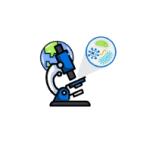
More information
Contact us for more information about our research
Send us an email: hei-planet (at) uni-heidelberg.de



